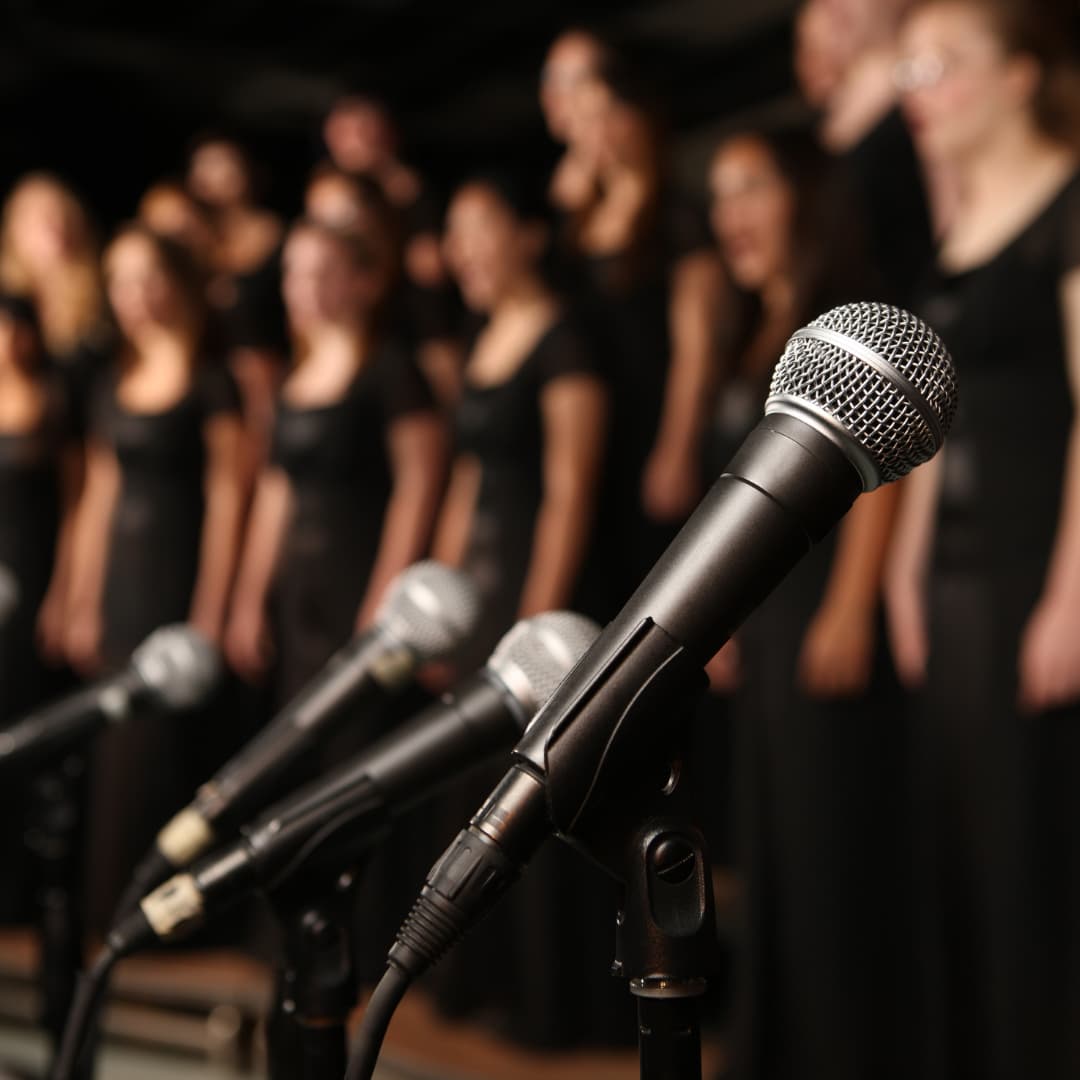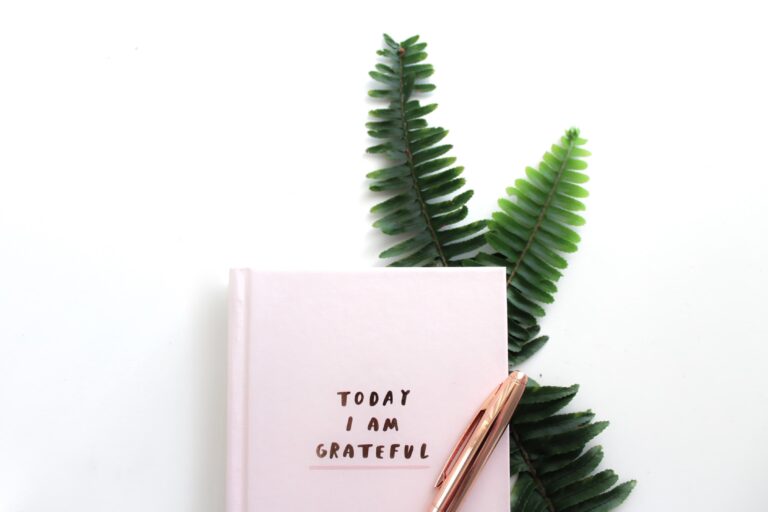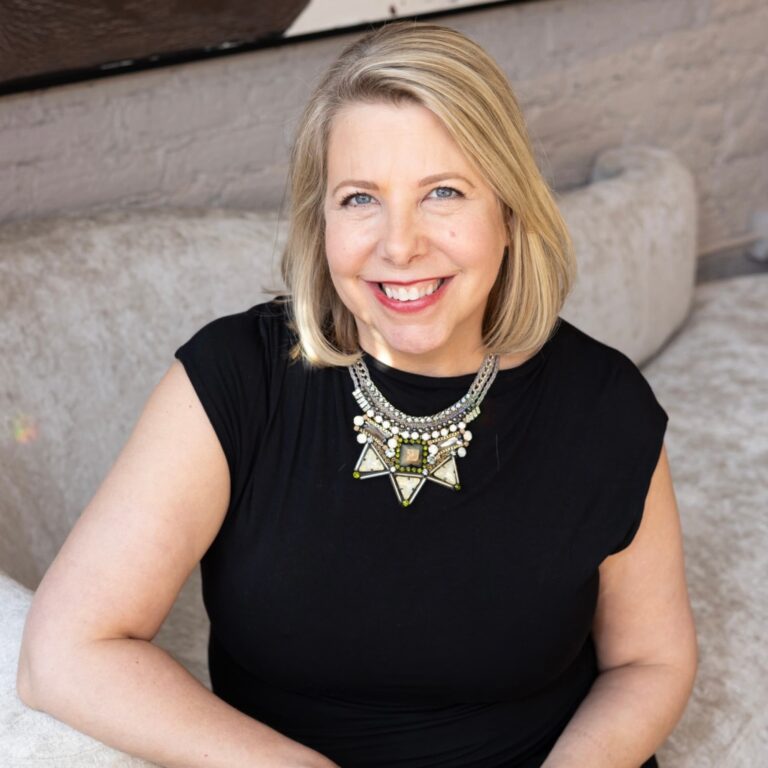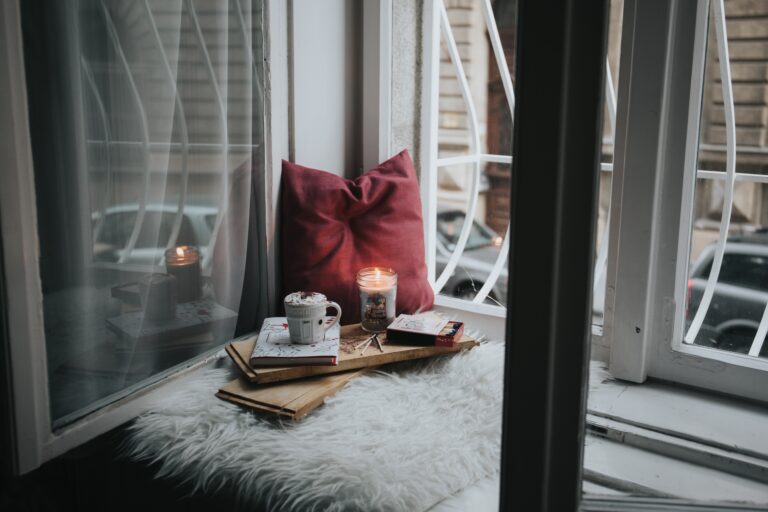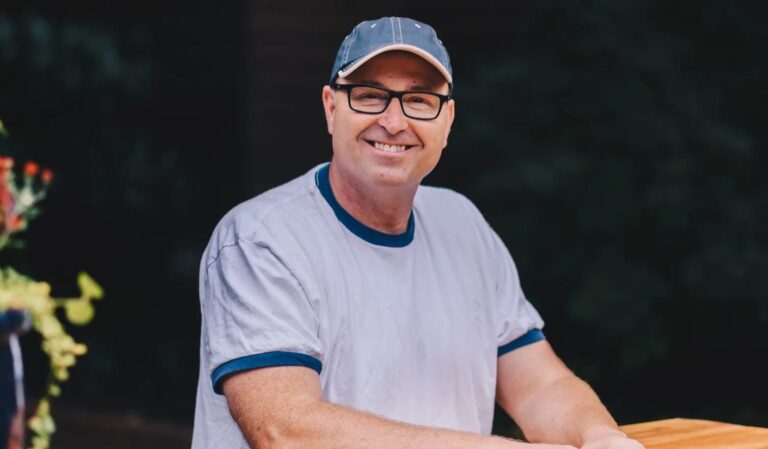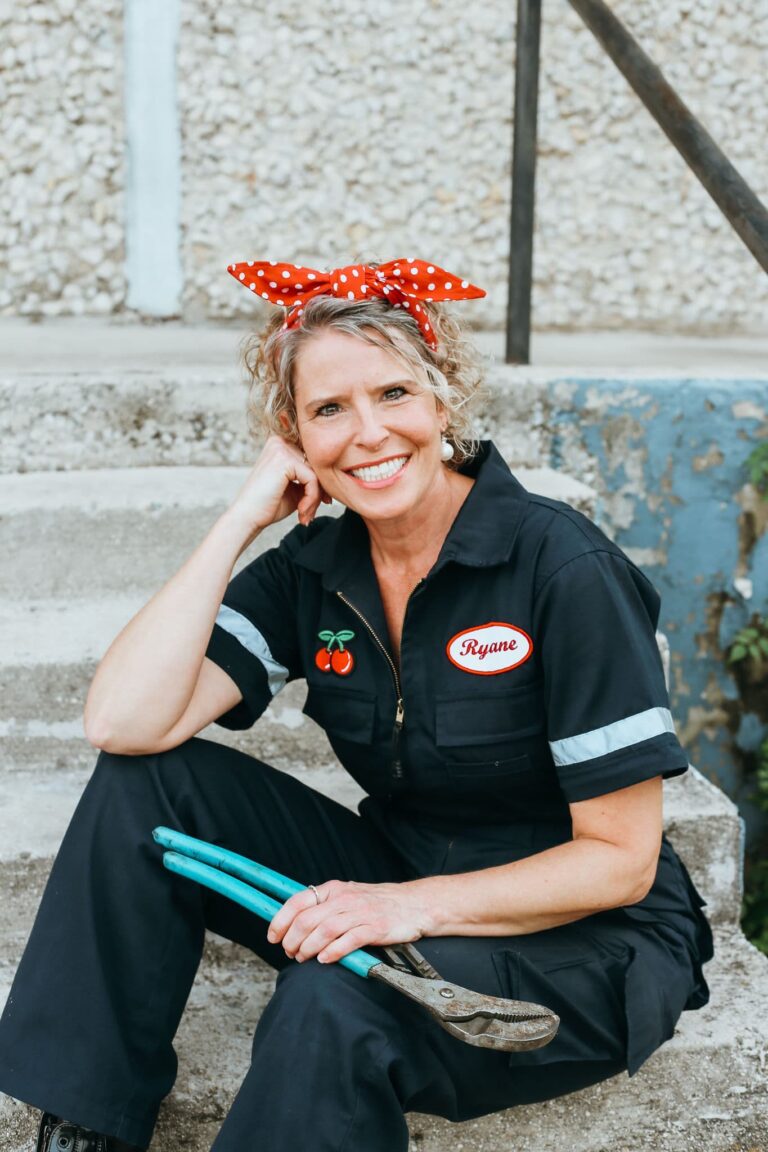Rediscovering Joy: The Importance of Hobbies for Widows
In this episode of The Widow Squad Podcast, we dive into the importance of hobbies for widows and how different hobbies helped us cope with grief and find joy in our lives.
I share my deep love for reading and how it became a crucial hobby for me. In order to understand my experience and find reassurance in knowing my feelings were normal, I read all the books I could get my hands on about grief and healing. I also developed a profound interest in the afterlife and explored books on spirituality and near-death experiences.
Melissa talks about her passion for singing and describes how she literally couldn’t sing due to her overwhelming emotions and grief after her husband died. However, she discovered healing through a music therapy class that helped her slowly find her voice again. Melissa then joined a choir which allowed her to experience the joy and harmony of singing alongside others. Music became a coping skill and a way to express her truth.
And Kim started out with an hilarious attempt at bubble soccer, a physical sport played inside inflatable bubbles. Although it seemed like a fun way to get active and distract herself from grief, Kim discovered that playing against highly competitive opponents was more painful than enjoyable. Realizing bubble soccer wasn’t for her, she sought a different creative outlet and stumbled on drawing. This newfound hobby allowed her to experience the calming benefits of artistic expression.
Join us as we share our powerful stories and insights on how hobbies for widows can play a vital role in healing and finding joy after widowhood. Rebuilding your life after loss can be filled with unexpected discoveries and joys, and it all begins by taking that first step towards finding a hobby that resonates with you.
Listen to the Full Episode Here
Links + Resources From This Episode
“It’s okay to find joy and healing in doing the things that you love.”
Episode Transcript
Jen: Hey there, everyone. Welcome to the Widow Squad podcast. I’m your host, Jen, and I’m here with my fellow co hosts, Kim and Melissa. Today, we have a really special episode about how we navigated the ups and downs of widowhood and found strength and resilience through hobbies and activities for widows.
We’re just friends here sharing our stories and favorite pastimes and our words of encouragement for any of you on a similar path. So grab a cup of coffee and let’s dive it in.
Finding Comfort and Escape Through Reading
Jen: So talking about hobbies, one thing that I turned to and a hobby that I really leaned into was reading. And I’ve always been a bookworm forever as far as I can remember. The library is my favorite place to unwind and browse. Give me an old bookstore, and I can get lost in there for hours. I just absolutely love it. But when Brent died, I really dove into reading. And, admittedly, it wasn’t until probably maybe, like, the three month mark or so. Just because I was so overwhelmed at first. You know, those first few months, your world is upside down. And I was overtaken, I would say, with fear and anxiety, and I couldn’t even sit still enough to read a book. Or to focus on a book. That was really hard. So, it took me a couple of months before I could get there.
But so many people had given me books to read right after Brent died. You know, people don’t really know what to say to you. Thank you very much. Here’s a book. Here’s a book. It’ll help you. And I’m like, okay. I just need to get my brain wrapped around reading a book right now. It was really important to to focus on reading, but I couldn’t really get there for a few months. But I knew it would be helpful, and I finally got up to a place where I could actually sit down.
So I dove into reading all about grief and about healing because I was trying so hard to understand what I was going through. And I had never experienced any of the feelings that I was feeling. As a widow, of course, I mean, it was not an expected loss. I didn’t know how to deal with what I was dealing with, and so I was turning to books to help me through it. And I wanted to read things that were telling me I was normal, that it was normal what I was feeling. And that this is what it’s supposed to feel like because I had never experienced it before. So I also found I don’t know if you guys did, but it was kind of like this really deep interest in the afterlife. And what happens to a person when they die? I started to read books, all these books about near-death experiences, and I was reading books about spirituality, not necessarily religious books per se, but I was so curious. I just became so curious about what happens to a person when they die. There’s a lot of different theories on that. So there’s a lot of different books.
I’m like, my night stand was full. The thoughts that were running through my head, where is he? Where did he go? What is he doing right now? Like, these were the things that kept me up at night. And I felt like he was still with me. Like he was still there with me. So I would wonder about all these thoughts in my head, like, you know, can you hear me right now? Why do people die? Why do some people die and some people come back? Was he given a choice when he was on his way up to heaven or wherever you go. You know? Was he given a choice to come back? And he didn’t? He chose to go? Oh my god. I mean, it was like, these questions were driving me crazy. And I was desperately searching for answers. I just needed to know. I just wanted to know. I wanted all the answers to the world and the universe, and I didn’t know where to turn. So I turned to books for my answers.
I was reading about Buddhism, and, like, Buddhism teaches us about reincarnation. Well, that’s a thing. You know, like, I just soaked it all in, and I was pulling information from these different things to help myself process and to pick and choose what I actually believed. Because at that point, you know, all of my beliefs were kind of flipped around and I had these new beliefs now, now that this was part of my world and this was a part of my experience, what do I believe really happens? This is what I’ve been taught my whole life, but you know, what do I believe? So I was really curious about these different opinions around the world. And I just kept reading and reading and reading and reading. So reading for me served multiple purposes. Reading was teaching me what I wanted to know and what I wanted to hear. It was giving me the answers that I needed in order to cope with what I was going through. Reading was giving me comfort. And that’s what we’re all looking for.
Melissa: Right? Like, we just want some kind of comfort to get through what we’re getting through. At what point were you actually able to retain information? Because I read books. But I remember thinking what are these words? I don’t know what these words are. I would read, read, read, but I couldn’t retain until it was a certain point, I think it was maybe, like six or seven months in. What about you?
Jen: I was about to say that. Because I couldn’t even pick up a book for the first few months. And then finally, it was probably around six or seven months, I would say, where the words were actually sticking a little bit. And In some of those books, I would love to go back and read now because I know I would pick up on so many other things that I missed the first time. But the second thing about reading for me was that it’s just very comforting, and it’s a very calming activity. So of course when I was trying to get to sleep at night because I swear to God I did not sleep for 3 years, but reading at night just became a habit. It became a hobby. It was part of my routine. Something that I could do late at night and something that would calm me down so that I had books on my nightstand galore. I could take in a couple of chapters and then relax and go to sleep. Or try to go to sleep anyway.
But the other thing that I was gonna say about this and why it’s such a great hobby or thing to turn to was that reading offered an escape. It was like a much-needed escape from grief. And reading a book whether it’s fiction or, you know, whatever it is, it takes you out of your own reality, and that’s what I needed. So many times, like I said, especially if you’re reading fiction, but it’s imagination and it’s that feeling of living this other character’s life and taking yourself out of the role and the reality that is your own life. And becoming that character for a little bit.
Brent was always an obsessive reader, and I love that about him. He was always in a book, always buying books. And after he died, when Claire and I moved to Turks and Caicos, we took on a little project that really meant a lot to us, and this was something that was just getting started. You’ve heard of Little Free Libraries. Right? You’ve seen those? They’re all over the place, those book boxes. You can give a book or take a book. You know? So we love those. And we decided that we were gonna build a little free library in Turks and Caicos. So, this is an island with not a lot of reading opportunities and resources, and so we decided that we were gonna go ahead and build a little free library down there. And I had asked for donations from all of our friends in the US that gave us all of their used books that they didn’t want, and I found someone to construct this little free library for us. They built it, put it together, and we collected all the donations. Claire had a little stamp made up that I think said “donated in memory of Brent”. Like, we had a little stamp that we would put on our little free library books. And, anyway, it was cute. It was a fun project for her because she was so little. I mean, she was three, but she could stamp her little books and put them in the library and we had a whole thing. But, anyway, our little free library is at Da Conch Shack on the island. If anybody is down there wants to go and donate any books, that would be fantastic. It’s this awesome little place right on the beach. They have amazing drinks. And it’s a really fun place.
Kim: Did people know you did it or did you get any feedback from anybody that was using it from the island? Or did they know anything about you and Claire and why you created it?
Jen: We didn’t, like, do any kind of publicity, but I did have a plaque made that we put on the actual little free library on the top of it. And The Little Free Library plaque says it’s dedicated to Brent Hachfeld, and it says “books like life can take you to unexpected places.” So that’s on the little plaque there.
So reading, that’s what did that for me. Takes you to places that take you away from the reality that you’re in. So that was a fun project for us. I guess I should have promoted it more, but here’s the funny thing. And we’ve talked about real housewives before, but the real housewives, I think it was New York. Real Housewives of New York, they went on a trip to Turks and Caicos on one of their episodes, and they did a night at the Conch Shack. And there’s footage of them walking into the restaurant, and our little free library is in the show
Kim: No way. What episode?
Melissa: We have to find the episode.
Jen: I was watching this episode. We talk about zoning out and escaping. Okay. I was watching Real Housewives. I think it was New York. And, yeah, they walked into the restaurant. It’s crazy.
Melissa: Do you have a picture of it? We should share that somehow. Oh, our newsletter or something. That was really cool.
Jen: That is crazy. I want to know what episode now. I want to watch it. I’ll have to go back a long time ago. This is probably, like, five years ago. So we had our awesome side project and Claire could be involved and it was a fun thing and it was a hobby that he also loved.
Melissa:That is fantastic. You honored him. And made it an activity for Clare to connect with him. And then, oh my gosh. That is so cool. I kinda wanna go to Turks and Caicos now
Kim:. We should go there and take a book down and put it in the library. If I have to go, I’ll go.
Melissa: Okay. We’ll do a pic, we’ll do a photo op!
Rediscovering One’s Voice Through Music
Melissa: So Dave, I think I’ve mentioned this before, but he was a music educator and music teacher. And we were in the community choir, so we would sing together in the community choir, and that’s just a fun activity we like to do. I love singing. I always sang in junior high and high school. I was always in the chorus. And then when he died, I was like, yeah, I’m not singing. You know, I can’t sing. I actually physically could not sing. I would try to sing and you know how when you’re about ready to cry when your throat constricts. Yes. It was always that feeling whenever I tried to sing. I would be driving along and try to sing with the radio. I just could not. Like, my voice was broken. My, you know, my spirit was broken, basically. And I was really bummed because I love singing. I love when you’re in a choir all the parts are mixed together, and it creates this vibration and I get goosebumps. I’ve just always loved that feeling, and I was resigned to the fact that, well, I’m just never gonna sing again. I was just bummed. I wasn’t singing with Dave.
When I moved back to Portland, I was going back to school, and I was exploring, like, what lights me up. And tap dancing was one of them. So, I took a tap dancing class. That was great. I don’t do it anymore. But in that tap dance class, I met a gal who had a music studio and was a voice teacher, and she was running a group just a real small group around finding your voice again. I’m like, I’m gonna do that. So, this was about a year and a half after Dave died.
Kim: Again the Universe was interjecting and directing.
Melissa: I know. Because I wasn’t announcing in class that I wanted to sing. Nobody knew that. So I was just talking with her. What do you do? This is what she does. So I signed up for that class. And it was like music therapy. I didn’t even really know that, she wasn’t a music therapist, but it really was therapy. The people in there, we’re grieving. I mean, everybody’s grieving some type of loss, but we would pick a selection and try to sing it. And every time I did, I just had to stop. I just couldn’t. My voice wouldn’t make a good sound. So I was resigned to the fact that I would just sit there and just witness everybody there. Well, there was a gal that would get up and sing her selection, and she’d cry every time. And I’m like, well, maybe I can do that. Maybe I can just sing and cry in front of these people. I think there were seven or eight of us. And there was even a point where I just couldn’t, I was not hysterical, but I really couldn’t control my emotions. And she’s like, just lay on the floor. So I laid on the floor. These people surrounded me, and I was able to sing my song, laying on the floor.
Kim: Oh my gosh – I’m going to cry. This is so powerful. That is amazing.
Melissa: It was amazing and I was able to get some good sound out, and I was able to really move through my emotions and my grief. That was one of my coping skills. It was a coping skill for me, it was music. Because I love listening to music. I would listen to music. I just couldn’t sing it. So that was just an amazing experience. So that was 2012.
And flash forward to 2018, I hadn’t really dug into music. I was able to sing with the radio and, you know, torture my family with my singing. But 2018, I think it was a Facebook ad or something popped up on Facebook. There was this group called Rock Voices. I’m doing a plug for Rock Voices here. There’s a lot of them on the East Coast. There’s quite a few Rock Voices organizations on the East Coast, and there’s only one on the West Coast. It’s in Portland, and they were just starting a chapter in Portland. And it was close to my house, so I just signed up. I had no idea what this was about. Just a choir that sang rock songs. And contemporary music. And so, I walk in, I don’t know a soul. There were 30 of us at the and everyone’s brand new. Nobody knew anybody. And we all went around and introduced ourselves and I stood up and said who we were and why we were there. I told just a tiny bit of my story and there were a couple other widows in the group. I just went out with them last night. And they were saying the same thing. They loved to sing. They couldn’t sing. They were trying to find their voice again.
I’m still in Rock Voices. We have, like, three sessions a year. And it’s like I said before, that vibration when the song’s coming together and everybody’s singing their parts and it makes that tone, it’s just so, I’m getting goosebumps right now when I talk about it. I love it. I don’t have the best voice in the world. I just love to sing. I don’t need to do a solo or whatever. I want to just be in a safe space where I can use my voice, and I really found my voice again. I think that was huge for me. It’s just that I found my voice. I’m able to speak my truth. It really moved me forward in these past four years. And it was tough during the pandemic. You know, we did a virtual choir. I don’t know if you remember seeing during the pandemic where people would record themselves, and then somebody would edit it and put it all together. And so you could see a hundred people on the screen, and they’re all singing. We did a couple of those and that turned out really well. They were super fun.
Kim: So I’m assuming most of the people that go do have some kind of a decent voice. Right? You’re not just gonna take somebody who screeches.
Melissa: There’s no audition. And I don’t read music.There’s a lot of people who do read music, and they’ll be like, “oh, I think this is a C sharp.” I don’t even know what that is. All I know is I can see the note, and I know my voice needs to go up, a half step, or whatever. So I know that. But, no, there’s no audition. And, you know, most everybody can sing.
Kim: That’s amazing. This an awesome thing for people to know. I’ve never heard of it. So I’m sure there’s many people listening. They’re like, I want to sing.
Melissa: I think it was a Facebook thing. I think they ran some ads and popped up, and I loved to sing, and it really helped me cope and move through a lot of my grief. I met some fantastic people who are dear friends now. One gal called us the widow brigade because she thought we all knew each other, and we all came in together as a group. No. We all met each other there. Try finding a hobby, something you love to do, something that lights you up, try things out. If it’s not a good fit, try something else out, but pay attention to those signs. You know? Those do come up.
What about you, Kim? Any hobbies and activities that light you up?
Exploring Healing Hobbies for Widows: the Art of Zentangles
Kim: Well, there were two things I did right after or close after Mark died. One of them did not light me up. The other one did.
Mark died in February, so that summer, friends of mine asked me to join a bubble soccer league. Have you heard of bubble soccer?
Melissa: No, I have not.
Jen: What is that?
Kim: Let me tell you about bubble soccer. So this is back in 2014, but it’s literally this huge bubble, like a plastic bubble, but you put it over your head and like, your arms go out of it. So it’s almost like a protective bubble, but you’re playing soccer with it. So you’re knocking each other down and running into each other, but it’s a padding if you can picture this in your mind.
Melissa: It’s not the rolly ball?
Kim: It’s just a huge thing that goes over the top half of your body. And you’re in it. Like, it’s not like you’re suffocating in it, but you’re inside the bubble. You can see everything.
Melissa: Pictures, please!
Kim: I thought I should do this because it got us out of the house. The boys could come, you know, watch me play. It was physical, you know. But it was horrible, quite frankly, because I’m, you know, I’m about 5 foot 3 as it is, you know, on a good day, I’m shrinking, I think. But I didn’t realize how physical this was gonna be. So my friends and I were in our, you know, mid-forties, but we ended up playing with these 20-year-olds who were just creaming us on the field. So their idea of a good time was, like, running you down. So I’m in the bubble. I’m protected. But they are knocking me all over the place. So just imagine a piece of popcorn when it first goes in the hot vat of oil like, pop-pop-pop, that was me on the soccer field. I felt like I was a piece of popcorn. I mean, I would go down, and then I got back up again. I’m like, what just hit me? And where did you come from? And he’s coming back for me again. And I would sometimes I would just fall down, so that they wouldn’t get me. It was awful. It was awful. And I’m not a huge soccer, fan to begin with, but that was it. It’s funny now. But back then, I’m getting knocked around and my body hurts. If we were smart and we had maybe joined an over 40 league instead of playing with 20 somethings, it might not have been that bad. But my friends ended up, you know, re-signing up and going on. I’m like, “I’m out.” Like, I’m not coming back here again. It was not fun.
Jen: So maybe the plus side to that is working out your anger, though.
Kim: If you’re willing to get the physical hurt to let go of the anger, by all means, go play bubble soccer. They do have bubble soccer for kids. Like, you could’ve back then, I don’t know if they still do this, but back then, you could go buy them in the store. And you would just pump them off and your kids could do it in the backyard too. You know, I haven’t been tracking bubble soccer in the past few years. So that did not work.
But when I was in the family therapy with my kids, this was group therapy where we’d have a little bit of the first hour as a family, and then everybody would break off into their own groups. And I think I’ve shared part of this before, but a lot of the therapy in the family part was crafts or drawing or doing something creative in the room with everybody, and there was always some drawing involved. And I’m not a very good artist. I’m not an artist at all, quite frankly, at it. I don’t draw.
So they would give you these sheets of paper or we had to do, like, Christmas ornaments and paint on it or rocks or something. They would give me this blank slate and just tell you to go create something. I don’t do well with blank slates. Okay? I was just like, I don’t know what to draw. I don’t know how to draw it. It would stress me out so bad that I would almost become, like, paralyzed with panic. This sounds ridiculous. It’s a drawing. Put a stick figure on a piece of paper and call it a day. But I couldn’t do that. So I was like, what am I gonna draw? How am I gonna draw it? And then you share at the end if you want to. They didn’t force you to. But I could not actually understand my paralyzing fear. It was quite ridiculous. I’m like, there’s something wrong. If I can’t draw something on a piece of paper, there’s something wrong.
So it was just that being put on the spot, I think, and just trying to come up with something on a blank page just wasn’t working for me. So like, when my kids were in elementary school, they used to have these after school projects where a man would come in and teach them how to draw. I don’t know if you’ve seen these booklets before where you start with a circle and then you add not just stick figures, but he would like it was step-by-step drawing, and it would show you how to go, maybe do a face or do an animal. I thought, I wonder if there is anything like that for adults? You know? Like, I just need to know how to put something on a blank piece of paper.
So in my research, I came across something called Zentangles. I’ve talked about Zentangles before. So what Zentangles the Zen part is you’re drawing, and it is peaceful and pleasing to you. That’s the Zen part. And then the tangles are just like, what would you call it? Like, it’s a drawing, but it’s where you connect dots or you connect triangles or you connect things together. And it’s just there’s no necessarily proper way to do it. Everybody can do it differently. But they give you, like, in some of these books I read, a way to start the drawing. So just imagine drawing a circle and then another circle and another circle, and then you connect it with a line. And then next to that, you might have a straight line. But you shade in parts of that line. And then next to that, you might have a triangle or two or three. So, they would just give you ideas of how to start that drawing. It’s like a pattern. You would do it in a pattern, and then you can go off and riff on it however you want. You could follow somebody else’s drawing if you wanted to, or you could riff on it and, you know, and do your own. So maybe start with a circle or triangle you branch out from there. Well, I was like, okay, I could do a circle and then connect a line to another circle and then connect a line to another circle, and I can make that my border around this blank piece of paper. And then I was just like, okay, maybe I can do this. Maybe I can draw.
So I would start practicing with these Zentangles. I bought a couple books and some paper. And sometimes you have to use a special pen because it can be really hard to draw without a really fine tip, you know, marker. So I stacked up. I got the books. I got the markers. I got the paper. I got all the things. I got the rulers. I did all of it.
And I would just sit down with these books, and I would just draw these tangles. And I was like, oh my gosh. I was shocked at what I actually created, to be honest with you, because I went from being absolutely terrified of putting something on a page to I made this really pretty flower or whatever. It can be very intricate. You can go very intricate.
But when I would go back to the grief support group, then I was like, give me some paper. Give me a blank piece of paper. I’m gonna show you what I did today. Now I know how to do that. That’s how ridiculous it was for me. I mean, it really is embarrassing that I was so paralyzed with fear over that. But I just, you know, needed a jumping off point. I don’t do good with blank slates. I need a jumping off point. So that circle or triangle was just the jumping off point for me. So I just bought all the books, like I said, and did it all. And I’ve created note cards for people. I’ve created birthday cards and anniversary cards pretty well.
I haven’t done it in a while, but I have a little bag over my chair in my office. And every once in a while, I’ll sit down and start doing it. So once I figured out how calming that was for me, that’s when I would go right to this bag and pull on my supplies, and I would just grab the bag and sit down on my chair. I’m like, okay- I need to get out of my head. I just need something to do.
And the repetitive pattern part? Wow. Game changer. Game changer. For me. I had to focus on that pattern, and then I could just let go of everything else. So those are some really good Zen, peaceful, pleasing things that I did. I was a stress case. Right? Like, we talked about before. We were all very stressed out. And I needed something to decrease that stress. So I did the Zentangles, and I highly recommend it. They have classes. You could go take Zentangles classes. Online or in person. They have Zentangles teachers. I actually got to a point, you guys, where I was convinced I was gonna go get certified to be a Zentangles teacher.
Melissa: Why not?
Kim: Yeah, why not? Well, I was gonna do a lot of things. Every time I found something, I liked I’m like oh, I’m gonna go to that. I’m gonna get that certificate and that certificate. I’m gonna go teach this, this, and this, and then you have to say, okay. What is realistic and, you know, reasonable?
So they have lots of opportunities to learn it. And, yeah, I think it’s cool if you like to draw. I mean, if you don’t like to draw, you learn how to do it. To see what you can create. It’s something about creating. You’ve probably seen some of those ads on social media with the art that you can do now, like the Paint by Numbers kinds of things and these beautiful pictures. And I’m like, oh my gosh. I need to start doing that too, because I don’t think I can paint. Well, maybe I can paint. Maybe if I had somewhere to start, I could learn how to paint too. So that creation process. It’s kind of a neat thing. And especially when you’re grieving because you’re so overwhelmed with everything, but then you make this really pretty intricate thing, and you’re like, wow. I did that.
Melissa: It’s pretty cool. Well, even with building confidence, because when you first started out of what I heard you say, like, the thoughts in your mind were like, I can’t do this. This is like I have a blank. I should be able to do this. Why can’t I do this? And then you move to a place where I created something really beautiful. Wow. And I saw the look on your face when you were talking about where you were and where you ended up? You lit up. And all these things, reading, singing, creating, anything keeps you super present. You’re not future tripping. You’re not thinking about the past. You are in the moment reading, creating, drawing, singing, whatever that is. It’s a nice break.
Kim: It’s a really good break. And I started writing too. So I was writing a lot more. And I have articles on the Medium platform. I was just writing whatever came into my brain. I don’t know if you know Medium, but it’s just a platform people can read and clap and do whatever on your post. So I was getting lots of feedback and lots of people reading. And same thing, it’s like, I have a lot that I wanna say. I don’t know if people wanna read what I had to say. Right? But when you get that feedback, you’re like, oh my gosh. I’m gonna do another article, and I’m gonna write about it and it’s all widow related. It’s all grief and widow. So my experience that I’m going through, so I always tell other widows that I know, I don’t care if you write to publish or not. Just, you know, kinda get it out. And sometimes you come up with something that really resonates with other people, and you don’t know that it does. You gotta put it out there. I mean, you have to get in front of other people, but you can start doing things you don’t think you can do. You actually can do them. And it’s just as taking that step and, you know, trying, I guess, or whatever you wanna call it, just taking the step to do it. Reading, writing, drawing, painting, creating, dancing, singing. Doesn’t matter what it is. Find something. And change your mind if you want to and move on.
Don’t do bubble soccer. Don’t start off with bubble soccer.
Jen: You will give up on everything if you start off with bubble soccer.
Melissa: Don’t aim high with bubble soccer.
Kim: That’s not recommended.
Jen: Oh my gosh. This is an awesome episode, you guys. So everyone listening today, you heard from us. About how we’ve each used hobbies to find strength and courage and confidence after loss. And just remember that you’re not alone and we’re here to support you as you rebuild your life after the death of your spouse. It is a ridiculously hard thing that you are going through, and it’s okay to find joy and healing in doing the things that you love. So until next time. Take care of yourself.

